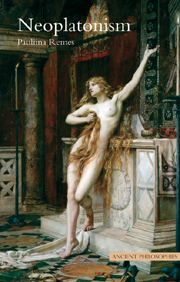Book contents
- Frontmatter
- Contents
- Preface
- Acknowledgements
- 1 Introduction
- 2 The first principles and the metaphysical hierarchy
- 3 Nature and the sensible universe
- 4 Human being and the self
- 5 Epistemology and philosophical psychology
- 6 Ethics and politics
- 7 The Neoplatonic legacy
- Glossary of terms
- Guide to further reading
- References
- Index of passages
- Index
4 - Human being and the self
- Frontmatter
- Contents
- Preface
- Acknowledgements
- 1 Introduction
- 2 The first principles and the metaphysical hierarchy
- 3 Nature and the sensible universe
- 4 Human being and the self
- 5 Epistemology and philosophical psychology
- 6 Ethics and politics
- 7 The Neoplatonic legacy
- Glossary of terms
- Guide to further reading
- References
- Index of passages
- Index
Summary
What is a human being and who are we? These questions are, it may well be argued, central for Neoplatonism. Neoplatonism is situated in a long tradition that evaluates humanity as something special; human beings are both a part of nature and, through their divine intellectual ability, above the rest of nature. The Neoplatonic approach to these issues combines this general attitude of ancient philosophy with a novel way of putting the emphasis in questions about “us” (hēmeis). While explicating the shared nature of human beings as parts of the cosmos as well as highlighting the human capacity of and possibility for reasoning and knowledge in much the same manner as most philosophical schools of antiquity, the Neoplatonists seem to force apart an aspect of human being that is the “I”, or, as Plotinus puts it, “we”. This discussion is rooted in the Socratic exhortation “Know yourself!” (gnōthi seauton), and especially in the notion of care of the self (epimeleia heautou) central in the Alcibiades I. While modern scholarship sometimes considers this dialogue to be inauthentic, the Neoplatonists deemed it a propadeutic to all Platonic philosophizing. The dialogue introduces care for the self as central for human well-being. In order to be able to care for the self one must know what the self is. The striving is to discern a part of human nature that would be most thoroughly “us”, that is, the deepest and most important aspect of our nature worthy of our attention.
- Type
- Chapter
- Information
- Neoplatonism , pp. 99 - 134Publisher: Acumen PublishingPrint publication year: 2008

